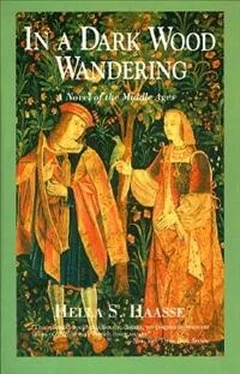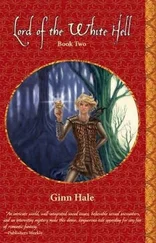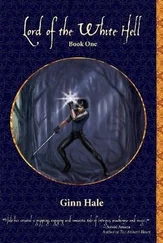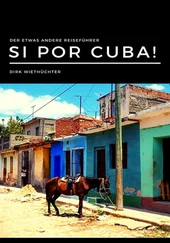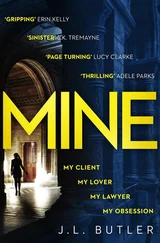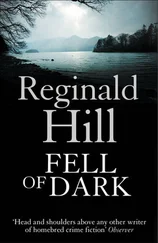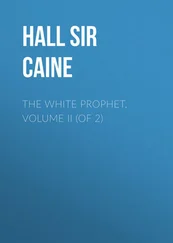The King replied sarcastically, but Charles did not understand what he said. He lost all sense of time and place. It seemed to him as though he moaned, warding off a blow; as though he sought support from a friend whom he could not recognize in the darkness.
A long time later he opened his eyes; the darkness had lifted; he lay in deep silence. Against a background of green shadows, he saw the trusted face of his friend, the physician Cailleau. Charles tried to smile; he moved his lips but could utter no sound. Cailleau was looking at him so gravely, so attentively. It suddenly seemed inexpressibly soothing: that large, wrinkled face, drawn by anxiety and tension, hovering above his own. It made him think of something: once he had experienced a similar sensation — long ago.
He knew now what it was — his nurse had looked upon him like this when he was a little child lying in bed. He had tried then to lift his hand and touch the veils of her white headdress. He really could not help laughing at the memory: for a whole lifetime he had forgotten how it felt to be a small, helpless child.
In the greenery above his head, patches of light and shadow seemed to stir, as when the leaves in the treetops quiver above the forest path. The smell of damp earth and ferns, cool and fresh, greeted him; now here and there he could hear the rippling of a little nearby brook, hidden from view by leaves and underbrush. Charles sighed deeply in surprise and pleasure. After the heat and the dazzling brightness of feverish visions, the coolness of the wood moved him with inexpressible emotion. He began to move forward, hesitantly at first, as though he doubted his ability to do it. Slowly he walked beneath the trees, through long, silky, rustling grass. Birds and small creatures fled at his approach with a light whisper of wings and a rustling in the undergrowth. The sun shone through the foliage above his head; he saw the network of dark nerves oudined against the green-gold shading of the leaf. He had wandered alone, but at a turning in the path he saw a figure awaiting him. He recognized him at once: it was Nonchaloir, beckoning with a smile. But oddly enough, for the first time he had no desire to seek his company; he turned instead into the shrubbery.
While he struggled through the tall bushes, defending himself against the boughs which struck back with a rush after he had bent them to one side, he heard familiar voices all around him behind the dense forest growth: his small son cried, his little daughter, laughing, called his name, Marie spoke to him calmly and persuasively — and now it seemed to him that they were all talking together in a kind of chorus; his servants and friends in Blois, his kinsmen and allies: he could distinguish Dunois’ loud, strong voice, Jean d’Angoulême’s thoughtful murmur. He wanted to escape from them, he wanted to be left in peace now so that he could make his way, alone and unhindered, through the quiet cool forest.
He quickened his step; he pushed through the tender rustling greenness of the young saplings as a swimmer cleaves the waves — the acrid fresh odor of new leaves blew toward him and the splashing of the brook seemed closer now. He did not know what he would find at the end of the journey; he was seized by so overwhelming a feeling of anticipation that to return or even to look back seemed to him to be out of the question. It did not matter to him that the ground began to slope upward to a range of hills, that pebbles and roots hampered his progress, that thorny shrubs, stinging nettles and prickly foliage wounded his face and hands. He stumbled and fell but got up again and, head down, plowed into the intertwined growth around him. At times it seemed as though there could be no way out; the birds sang sweedy and enticingly in the cool leafy dome above his head, but he went on, warm and gasping, possessed by the longing to penetrate further, still further, to push on though imprisoned inextricably by twigs and branches. Who was holding him back, who was trying to keep him from finishing his journey?
The greenery receded once more into a twilit background. Cail-leau’s face came before him, large and hazy — it seemed to be asking him something.
“Where are we, Cailleau?” Charles murmured uneasily; he did not understand why he was no longer wandering through the shrubbery. Was this his goal?
“In the castle of Amboise, my lord.” Cailleau’s voice sounded very far away.
Amboise, Amboise, he thought in wonder; at the same time he noticed that the sound he heard was the murmuring of the brook. He waded through the crystal-clear icy water to the other bank; there the tree trunks rose high and smooth from the mossy earth. Far overhead he saw the sun-tinted leaves trembling in the wind. He ran forward quickly with an elastic step; and now from all sides, from the depth of the wood, Youth and Desire, Love, Joy, came toward him, a multitude of light-footed figures who cast no shadow on the forest floor. They were filled with the brilliance of the sun, which shone through the leaves; they were like figures in the windows of a church.
He walked past them with a smile and a greeting. Another procession approached with the jingle of harnesses and the clatter of hooves: the companions of his youth, his friends and comrades with whom he had hunted and gone into battle. But he did not stop to join them; he left them quickly behind. Bonne approached, barefoot, with a blue kerchief on her head; her large golden eyes lit up in a smile of deep happiness, and she stretched out her hand to him. He turned toward her, but the longing drove him on, past all those whom he continued to meet on his way — princes and kings, knights and priests, an almost endless procession of men and women whom he had once known. Silently and attentively, they watched him go by, as he hurried to plunge into the green depths of the forest from which they had just appeared.
Something sparkled before his eyes, someone slid something sweet and melting onto his tongue. High singing sounded very near. Only the odor which pervaded his nostrils made him realize what was happening. They were giving him the last rites. He was dying. He could not move; neither by word nor glance could he make them understand that he was still conscious. He felt himself shackled inside his body. For a few seconds he struggled hopelessly to make himself understood; my son, he thought, in mortal fear.
But now he heard the leaves rustling again, the coolness of the wind drew him irresistibly; he fled on through the soft grass that suddenly seemed very tall. Now he understood why this was so: he was a little child; bracken and plants reached nearly to his waist. The trees seemed as high as steeples. He stumbled on his path and fell. But within reach of his little hands he found the folds of a woman’s gown, the fragrance of honey and roses. He got up and saw above him his mother’s pale, lovely face. He did not stay, although he stretched out his arms, but slipped from the path into the shadows of the forest. He was alone among the terrifyingly tall undergrowth, the menacingly broad leaves covered on the inside with fine hairs, the virulently colored flowers with greedy biting lips and spiny tendrils. He cried for help, gasping for breath.
Now he was singed by pain. When he finally opened his eyes he saw, at the end of the narrow green path, dazzlingly bright light. There it is, he thought breathlessly, there it is. With a shout of joy and deliverance he plunged forward to meet the light.
Jean Cailleau, kneeling beside the bed, felt Monseigneur’s pulse with his fingers, put his ears against his breast; slowly rose. He looked attentively and lovingly at the face, set in an expression of final fulfilment. After that he bent and gently closed the dead man’s eyes.
